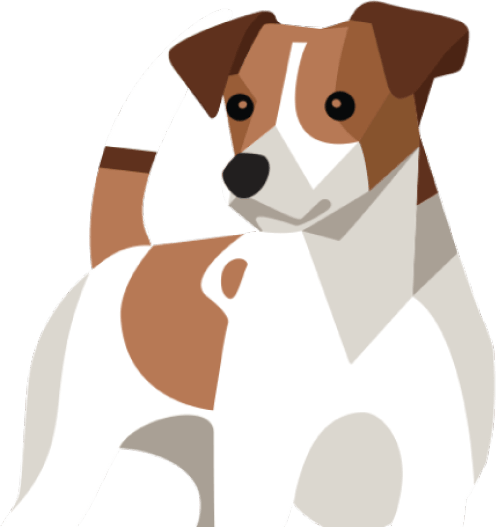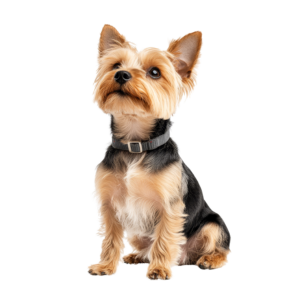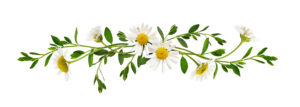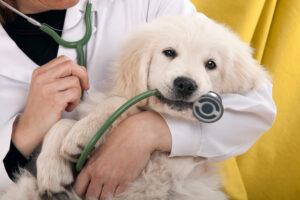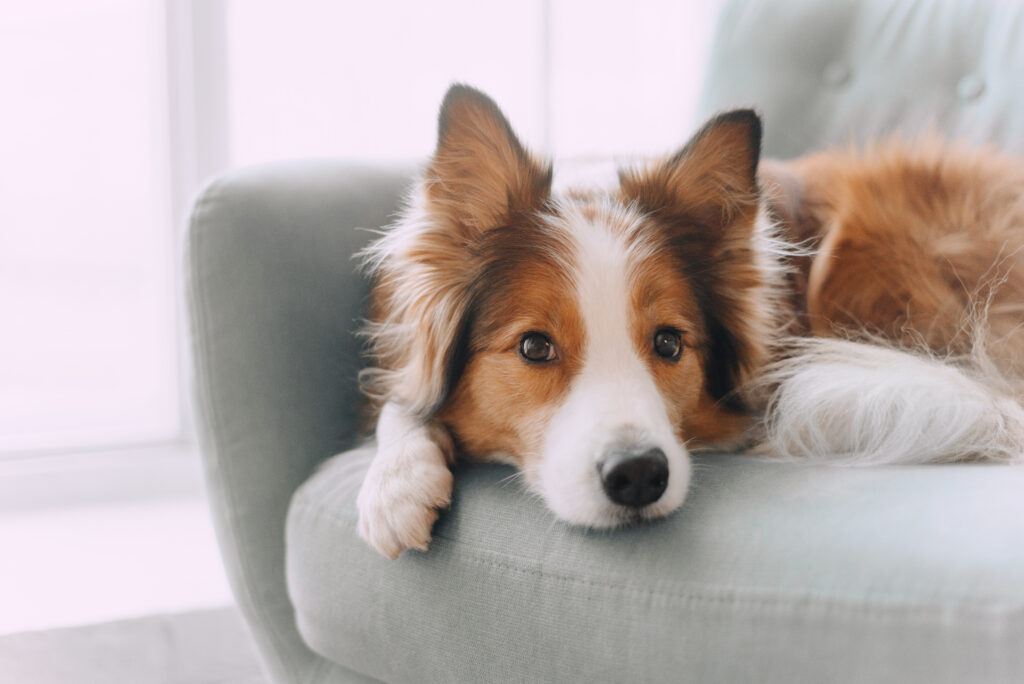
We all love our dogs; they are a true extension of our families and we would do anything to keep our dog safe.
However, each year lots of inquisitive pooches consume substances that are extremely harmful to them. Although we all know that accidents can happen, we have listed some of the main culprits that are dotted around the home and garden that may just want to be popped on a higher shelf, secured in a locked cupboard or avoided altogether.
Let’s start with our homes, a sanctuary for both us and our four-legged friends. Surprisingly there are a few households’ items that we might not think of that can cause harm to our pooches. When it comes to toxic items for dogs, knowledge is our best defence!
Household items – keeping your dog safe.
Furry family members are quite often the most inquisitive creatures and are eager to ‘help’ their paw parents in everyday tasks. Unfortunately, there are some tasks that are better to keep your dog away from due to substances used.
- Car anti-freeze – Antifreeze contains ethylene glycol; this is a toxic chemical that can be fatal for dogs. Be sure to clear up any spillages (even the tiny ones) and ensure the lid is securely closed after use.
- Glues – Glues can not only form a mass in your pups’ tummy but can also expand in the tummy often causing a severe obstruction.
- Slug pellets and pesticides – Slug pellets contain metaldehyde and are extremely dangerous for dogs. Pesticides should also be avoided as they are also toxic for dogs.
- Batteries – Again another extremely dangerous item for dogs to consume. They are filled with corrosive chemicals that when chewed can cause damage to the mouth, oesophagus and stomach.
- Cleaning products – This is one that is a little more obvious maybe, but definitely worth mentioning. Although, pet safe cleaning products are now available on the market, there are still many that can cause harm. The bright and colourful packaging can make them look like a toy to unsuspecting dogs so be sure that lids are secured, bottles wiped and stored in a locked cupboard.
- Medications – Many medications for us humans can make our four-legged friends extremely poorly so keep them out of reach or ideally locked away.
Outdoor hazards
Our playful pups are naturally curious—they sniff, chew, and explore every nook and cranny of our gardens. Unfortunately, not every pretty plant is a friendly treat for them. Some plants contain chemicals that can upset a dog’s tummy or, in worse cases, lead to serious health problems.
Plants that although look inviting, are best to keep your pup away from.
- Daffodils
- Bluebells
- Tulips
- Azaleas
- Amaryllis
- Rhododendrons
- Buttercups
- Crocuses
- Cyclamen
- Foxglove
- Hyacinth
- Elderberry
- Lupin
- Rhubarb
- Sweetpeas
- Lillies
Other garden items to avoid.
- Grass seeds – These seemingly harmless seeds can easily get stuck in your dogs’ paws, skin and ears. This can cause irritation and infection.
- Weedkillers and fertilisers – Often toxic to most pets, it is best to avoid any treated areas and store substances in a secure location.
- Fungi/ mushrooms – Although not all are toxic, most will cause gut irritation for your dog with some causing potentially more serious problems, it is always best to avoid completely.
- Compost and garden waste – Store these in a sealed container as the moulds and bacteria that grow in these conditions can present a danger to your dog’s health.
Food & Drink
We know that our furry friends are eager to try the tempting food us humans eat but remember not all food is dog safe.
- Chocolate (the darker the chocolate the more toxic it is for dogs)
- Alcohol
- Onions
- Raisins and grapes
- Cooked bones – due to splintered bones
- Small bones
- Avocados
- Caffeine
- Macadamia nuts
- Fat trimmings – can aggravate pancreatitis
- Stones from peaches, plums and cherries
- Raw potatoes
- Xylitol (found in peanut butter and toothpaste)
- Rhubarb
How to know if my dog has been poisoned
As a paw-parent you can’t be with your dog every second of the day and their boundless curiosity can often take them exploring in environments that may contain some of the potential hazards we have already mentioned.
Common symptoms of poisoning to look out for in your dog.
- Not eating
- Drooling
- Rashes
- Low energy
- Vomiting or diarrhoea
- Drinking more
- Red skin
- Increased urination
- Mouth ulcers
- Collapse
- Seizures
If you think your dog has consumed something from the above lists or is showing any signs of toxicity, please call your vet immediately.
Try the Laughing Dog range of Brit Bite treats as a delicious reward for being a brave pup, available in 4 tempting flavours.

